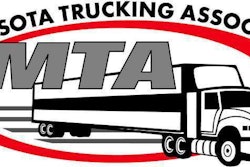The National Motorists Association (NMA) spoke out on Oct. 19 against a U.S. Department of Transportation speed limiter rule proposal which would cap the maximum speed of trucks.
The rule is a joint initiative between the National Highway Traffic Safety Administration (NHTSA) and the Federal Motor Carrier Safety Administration (FMCSA).
The proposed speed limiter rule, released Aug. 26, would require trucks weighing more than 26,000 pounds to have speed limiters. Potential limits on these speed limiting devices, based on analysis released within the rule, could be 60 mph, 65 mph or 68 mph.
Gary Biller, NMA president, wrote that the NMA encourages individuals to speak out against the proposed speed limiter rule during the public comment period. The public comment period ends Nov. 7. The NMA is a national organization which defends the rights of motorists.
In a statement posted on the government site for public comments, the organization wrote that it “has severe reservations about artificially limiting truck speeds when it is well established that speed variance among vehicles is a primary factor in crash risk.”
The NMA’s complete commentary on the speed limiter rule can be read online.
The Owner-Operator Independent Drivers Association (OOIDA) has also spoken out against a mandate for speed limiters. In an official statement on its site, OOIDA says “mandating speed limiters would decrease overall highway safety because the interaction between large trucks and passenger vehicles would increase.” OOIDA also cites concerns about drivers speeding in lower speed limit zones to compensate for lost time, as well as a profit loss concern for owner-operators who could lose as many as 50-55 miles a day, OOIDA says, if they had to drive 65 mph instead of the common maximum 70 mph.
The American Trucking Associations withdrew its earlier support of the proposed rule, and ATA President and CEO Chris Spear has called the rule “flawed.” He said the rule as it currently is “provides insufficient data, and fails to make a recommendation regarding which of the three proposed speeds is best and why.”
The ATA and the Commercial Vehicle Safety Alliance have stated more time is needed to study the rule and develop comments. The ATA requested a 30-day extension to the public comment period, which currently ends Nov. 7. OOIDA also submitted a request to double the comment period from 60 days to 120 days.










